US rail provider Amtrak has lately found itself in some unexpected and exclusive company. In 2023, Amtrak earned a place on Forbes’ 2023 list of best employers for new graduates for the second year in a row, joining some of America’s most recognisable, fastest-rising and progressive brands.
Appearing on the Forbes list of best employers for new graduates bodes well for Amtrak’s (and the rail industry’s) ability to attract and hold on to younger workers during an ongoing talent crunch. But it also underscores the urgency with which rail companies must address that talent shortage, and the challenge for them to attract members of Gen Z and its successor, Generation Alpha.
US rail provider Amtrak has lately found itself in some unexpected and exclusive company. In 2023, Amtrak earned a place on Forbes’ 2023 list of best employers for new graduates for the second year in a row, joining some of America’s most recognisable, fastest-rising and progressive brands.
Appearing on the Forbes list of best employers for new graduates bodes well for Amtrak’s (and the rail industry’s) ability to attract and hold on to younger workers during an ongoing talent crunch. But it also underscores the urgency with which rail companies must address that talent shortage, and the challenge for them to attract members of Gen Z and its successor, Generation Alpha.
Rail operators have several advantages when competing for younger talent.
They offer what’s perceived as a steady, stable career path.
They represent one of the least-polluting, most environmentally benign modes of mass transportation.
They offer incoming employees compelling opportunities to drive the technological evolution of one of the world’s vital industries.
And they are making a genuine effort to attract younger workers, as evidenced by recent policies and programmes in the UK, where a proposal is pending to create new apprenticeships in rail while also lowering the minimum train driving age.
To become a true employment destination of choice for Gen Z, rail companies must project a modern, progressive image to candidates and employees. To do so, they’ll need to be forward-thinking and strategic in six critical areas:
Modernise outdated hiring requirements and job postings to expand the recruiting pool. The ‘new collar’ talent pool - younger people without a traditional degree but with some further education and training - is “huge, capable, and diverse”, according to the authors of a 2023 analysis in the Harvard Business Review.
To successfully recruit younger people, particularly those in the new-collar category, rail companies will likely will need to advertise desired skills and attributes instead of required degrees, focusing on the core capabilities needed for a position.
As the HBR authors point out: “Unnecessary degree requirements don’t just hurt workers. They also deprive companies of talent while yielding little to no benefit.”
Ultimately, they say, these degree requirements create a competitive disadvantage and hinders an organisation’s ability to build a more diverse workforce.
Another way for rail companies to cast a broader net for Gen Z talent is by using generative AI-powered tools to search for candidates across the digital landscape, such as on social media platforms. AI can quickly scan huge amounts of information, including posted résumés/CVs, identifying people with skills that best match a job profile.
Start connecting with the younger generations early - in schools and via their preferred digital channels.
Sending rail company representatives into schools, to share with students an inside look at the exciting jobs available in the rail sector, is a powerful way to cultivate interest in the industry. There’s great appeal in jobs where they can use AI, virtual reality, and other high-tech tools.
As for recruiting today’s jobseekers, it’s important that rail companies connect with them on their digital turf (YouTube, Instagram, TikTok, Reddit, etc). And when they do, to speak in a language to which they relate, and in formats they prefer.
Social media platforms are where Gen Z gets much of their news and where they look for job opportunities, so rail companies need a strong recruiting presence there.
Once you’ve piqued their interest, keep them engaged with a fun, simple-to-navigate recruiting presence that includes your own social pages and website, using an AI-driven hiring assistant that make it easy for candidates to find more information and interact with your recruiting systems to pursue a position.
Entice them with a personalised, fulfilling workplace experience and career path.
For example, Amtrak is offering paid internships and co-ops for undergraduates and graduate students, in addition to entry-level apprenticeships and scholarships to students in trade, vocational and degree programmes.
Rail companies also must meet Gen Z’s desire for a personalised employment experience - one that gives them upward mobility, along with the flexibility to change jobs and geographic locations within the organisation if they choose.
Gen Z also wants upskilling and training resources to help them excel in their work, and the ability to easily provide feedback to managers and the organisation.
Impress Gen Z with a digitally-forward way of doing business and technological capabilities that support them in their work.
From the first time they interact with a company, through the hiring process and across the entire employee journey, Gen Zers expect a digitally robust, seamless, mobile-enabled, and highly personalised experience, with access to intelligent, mobile-enabled digital tools during the recruiting process, and for onboarding, self-paced on-the-job learning, collaboration and communication, professional development, and more.
As comfortable as Gen Z is in digital environments, they will gravitate towards rail companies that provide superior digital experiences to jobseekers and employees. The opportunity to work in emerging tech-focused areas such as autonomous rail transportation, high-speed rail infrastructure, and designing and engineering the rail coaches and onboard experiences of the future, is compelling to younger workers.
Show them you’re a company that takes sustainability, carbon-reduction, diversity, and social responsibility seriously.
Climate change matters to members of Gen Z, 55% of whom said they research an employer’s environmental impact and policies before accepting a job offer, according to Deloitte.
As a rail company, it’s critical that you can document your decarbonisation efforts and overall sustainability performance. Offering sustainability-focused rail jobs can also help attract Gen Z.
An employer’s track record for diversity, equity, and inclusion, as well as environment/social/governance, also matters to Gen Z. Make sure job listings emphasise opportunities for people with diverse backgrounds and the organisation’s commitment to inclusivity.
Ultimately, Gen Zers want work that connects with their values and gives them a sense of purpose and belonging, along with an opportunity to meaningfully shape their communities and their world. Progressive rail companies can provide that.
Publicise, promote and position your organisation as an enterprising but stable place to work. Awareness is paramount, so be creative and persistent in trumpeting all the aforementioned traits to Gen Z, using their digital preferred channels and language.
By employing digital-forward approaches, the rail industry will position itself as a dynamic, innovative and financially competitive field in the eyes of the younger employees who will write the industry’s next chapter.
Login to continue reading
Or register with RAIL to keep up-to-date with the latest news, insight and opinion.


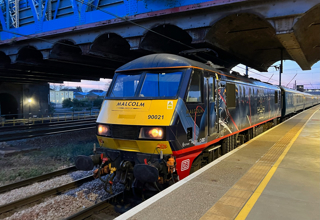
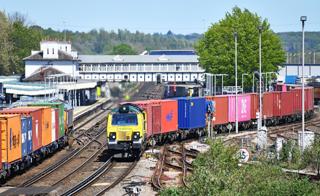
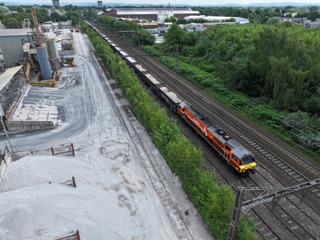
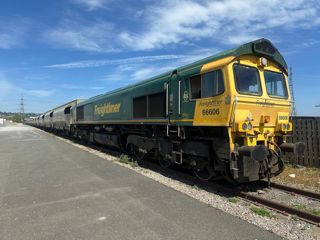
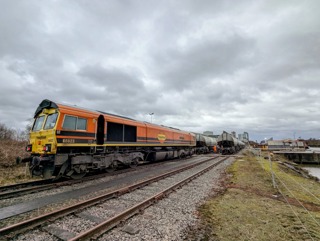










Login to comment
Comments
No comments have been made yet.